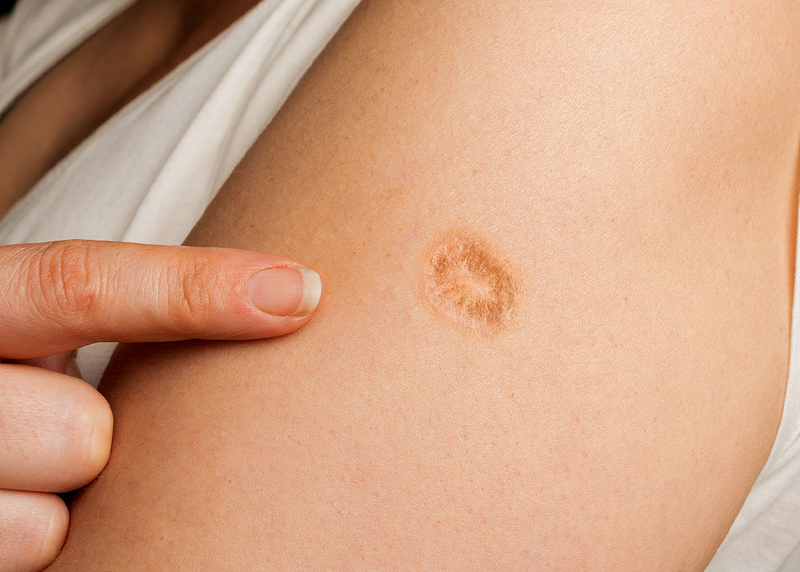A few years after reports began to surface of women around the world experiencing menstrual changes after being vaccinated for COVID-19, the Pfizer/BioNTech, Moderna/NIAID and AstraZeneca/Oxford University COVID shots have been officially linked to unexplained vaginal bleeding—even in women without regular periods—according to a new study published in Science Advances last week. The large cohort study surveyed the responses of 21,000 post-menopausal and perimenopausal women, as well as premenopausal women on hormonal birth control who do not have regular periods. The study found that more than 10 percent of the women experienced unexplained vaginal bleeding after receiving either the Comirnaty, Spikevax or Vaxzevria of the two-dose COVID shots.1 2
The study, which was unable to determine the causal mechanism of association, also found that the risk of bleeding during the eight-to-nine-month period after receipt of COVID shots is three to five times higher for premenopausal women or women in their reproductive years, especially. The risk of bleeding in postmenopausal women, in whom unexpected vaginal bleeding is otherwise considered a serious medical concern, increased two to threefold after the COVID shots were received. ³ The researchers did not offer an explanation for why the unexplained bleeding occurs or the biological mechanism involved, but suggested it could be associated with the SARS-CoV-2 spike protein in the shots.3
Another study on the effects of COVID shots on women’s menstrual cycles published back in May found “no strong association between COVID shots and changes in menstruation.” The same study, however, found that postmenopausal women had a 28 percent increased risk of bleeding in the first week after getting the COVID shots, and about a 25 percent increased risk of bleeding through the next three months, compared to before the shots were administered. Rickard Ljung, MD, MPH, PhD, professor of epidemiology and physician specialist at the Swedish Medical Products Agency who led the team of researchers to these findings, said that this pattern “doesn’t necessarily suggest an association between the two events.”4
Pfizer’s Comirnaty Only Tested for Impairment to Female Fertility in Rats
The potential short- and long-term effects of pharmaceutical drugs on women’s reproductive health are woefully understudied. In fact, Pfizer’s Comirnaty has only been tested for impairment to female fertility via a developmental toxicity study comprised only of rat participants, with no proof that the experimental mRNA product does not adversely effect male fertility. Additionally, the Vaccine Adverse Event Reporting System (VAERS), the federal system for collecting reports of serious health problems following vaccination, does not currently collect information regarding menstrual cycles.
“The most important contribution of this and other documentation will be that female bleeding patterns are included as endpoints, or monitored, in clinical trials of new vaccines—and perhaps even drug trials,” says Kristine Blix, lead author of the latest study.3
Sparse Research on COVID Shots and Potential Impacts on Reproductive Health
Health care providers have been calling for more thorough investigations into the potential reproductive implications of COVID shots, as well as other vaccines. In 2021, Victoria Male, PhD, a reproductive specialist at Imperial College London, called for more in-depth research after the MHRA received more than 30,000 reports of menstrual changes post-vaccination. “Vaccine hesitancy among young women is largely driven by false claims that COVID-19 vaccines could harm their chances of future pregnancy,” Dr. Male said. “Failing to thoroughly investigate reports of menstrual changes after vaccination is likely to fuel these fears.”5
Katharine Lee, PhD, a postdoctoral research scholar in the Division of Public Health Sciences at Washington University School of Medicine in St. Louis, Missouri, also agrees that researching the effects of pharmaceutical drugs on women’s reproductive health is important. Dr. Lee said:
Variation in menstrual cycles is surprisingly understudied, even though we know that they should respond to lots of kinds of stressors, including immune and inflammatory responses.5
Kathryn Clancy, PhD, assistant professor at the University of Illinois at Urbana-Champaign, is reportedly involved in similar research. “I am dismayed that the research design of vaccine trials makes it impossible at this time to actually explore this relationship and hope drug and vaccine manufacturers in the future take these considerations into account.”5
Dr. Sarah Gray, a general practitioner based in Cornwall, England, is a women’s health expert who ran a specialist women’s health clinic for the National Health Service (NHS) for 15 years, also weighed in on the sparse research on COVID shots and reproductive health. Dr. Gray said:
The control of menstrual bleeding is complex with potential effects from the brain, ovaries, and uterus itself. It is plausible that the effects of either [SARS-CoV-2] infection or vaccination on the immune system could affect this control pathway, and any research would be greatly valued. Women’s health has not been a research priority for the last 20 years and there is much we do not know.5
Dr. Gray’s comments were published in a 2021 Medical News Today article with an editorial note stating, “In January 2022, a large study set out to investigate the effect of COVID-19 vaccines on menstrual cycles. The researchers found only small, temporary increases in cycle length that were not clinically significant.” The publication has not yet been updated to reflect the latest study findings published last week in Science Advances.5
Unexpected Vaginal Bleeding Finally Listed as Potential Side Effects of COVID Shots
Changes to menstrual cycles or unexpected vaginal bleeding were previously not among the listed side effects for any COVID shots available in the United States, but they are now—almost four years after the initial rollout of the shots.6 Under the heading “COVID Vaccines for People Who Would Like to Have a Baby,” the U.S. Centers for Disease Control and Prevention (CDC) website now states with bolded text for emphasis:
Results from recent research studies show that people who menstruate may observe small, temporary changes in menstruation after COVID-19 vaccination, including: longer-lasting menstrual periods; shorter intervals between periods; heavier bleeding than usual. Despite these temporary changes in menstruation, there is no evidence that COVID-19 vaccines cause fertility problems.7
As for the dozens of other vaccines licensed by the U.S. Food and Drug Administration (FDA) and recommended by the CDC that are required by state law for children attending school in the U.S., section 13.1 in many of the manufacturer’s inserts states that the shots have not been tested for impairment to (male or female) fertility.
If you would like to receive an e-mail notice of the most recent articles published in The Vaccine Reaction each week, click here.
Click here to view References:1 Etzel G. Unexplained vaginal bleeding linked to COVID-19 vaccine. The Washington Examiner Sept. 26, 2023.
2 Blix K et al. Unexpected vaginal bleeding and COVID-19 vaccination in nonmenstruating women. Sci Adv Sept. 22, 2023; 9(38).
3 Sanderson K. COVID vaccines linked to unexpected vaginal bleeding. Nature Sept. 25, 2023.
4 Park A. COVID-19 Vaccines Aren’t Strongly Linked to Menstrual Changes, Study Says. TIME May 4, 2023.
5 Watts E. Do COVID-19 vaccines affect menstrual cycles? Expert calls for investigation. Medical News Today Sept. 17, 2021.
6 Lardieri A. Covid vaccines DO cause unexpected vaginal bleeding in women – even if they haven’t had their period in YEARS, study finds. The Daily Mail Sept. 27, 2023.
7 U.S. Centers for Disease Control and Prevention. COVID Vaccines for People Who Would Like to Have A Baby: No Evidence That COVID-19 Vaccines Affect Fertility. Sept. 30, 2023.














One Response
So many continued lies. I have friends who started menstruating from being around other women who had recently had the CV19 shot and not had it themselves. This shot series is a continued disaster.